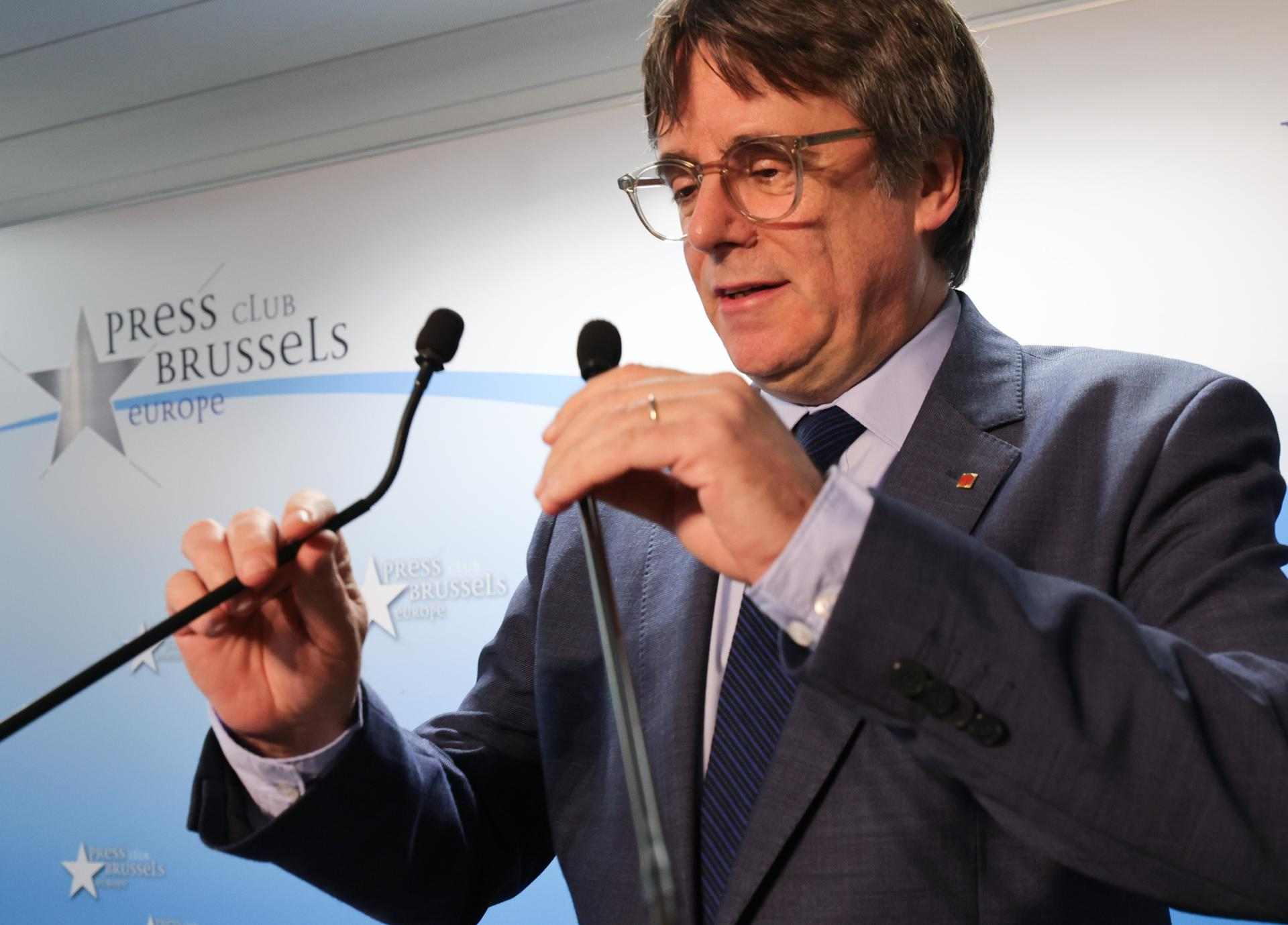New slap in the face from the public prosecutors of the National Audience court to judge Manuel García-Castellón. Prosecutor Miguel Ángel Carballo has lodged an appeal against the judge's decision to send the Democratic Tsunami case to Spain's Supreme Court because the Catalan president-in-exile and MEP Carles Puigdemont and ERC deputy Rubèn Wagensberg are accused, according to the written statement released this Wednesday. The prosecutor maintains that the judge has not yet admitted to the criminal chamber of the National Audience the first appeal presented by the prosecution service against the court's last resolution, on November 6th, which defined the actions which are the subject of the trial as a crime of terrorism and detailed the 12 people investigated, a list which for the first time cited Carles Puigdemont, in addition to ERC's organizational secretary, Marta Rovira.
In the first appeal, the prosecutor explained that the Civil Guard's investigation does not allow any crime of terrorism to be imputed to any of those investigated for the period since 2019, and that at most, the crime of public disorder could be suitable for two of those investigated, neither of them politicians, for the multitudinous demonstrations against the Catalan leaders' trial verdicts. And that's why he asked the judge to refer the Tsunami case to the Barcelona courts, where the events took place, as they were of a minor category. This position was shared by most defendants, such as Gonzalo Boye, lawyer for Josep Lluís Alay, head of president Puigdemont's office; and Benet Salellas, lawyer for businessman Oriol Soler and a director of Òmnium, Oleguer Serra.
Contradiction
The prosecutor describes it as a "flagrant contradiction" that the head of the National Audience chamber in this investigation had elevated the Tsunami case to the Supreme Court without any incriminating developments, and with an appeal still pending resolution by the National Audience.
In the appeal, the prosecutor reminds the judge that in his resolution of November 6th he stated that he had not yet put the detailed argument to elevate the cases of the accused because the investigation "was in the initial phase" - t his, despite the fact that he had been investigating it since 2019. However, two weeks later he managed to make this detailed argument without any new developments in the investigation. In the resolution, he made an offer to Wagensberg and Puigdemont that they could voluntarily appear in court.
"Hence, the submission of the detailed argument becomes a sort of ex-officio alteration of the aforementioned resolution without any basis, without any new proven facts and without any due diligence having been practiced to allow the obtention of new evidence of criminal responsibility by the accused Rubén Wagensberg and Carles Puigdemont", states the prosecutor, who adds: "All this goes against the provisions of Article 267.1 of the LOPJ which prevents judicial bodies from modifying the resolutions they pronounce after they are signed, except for the clarification of obscure concepts and rectification of material error, which have not turn out to be the case".
Consult Switzerland
A surprising new resolution by García-Castellón was also presented by the judge on Tuesday: while sending the Democratic Tsunami case to the Supreme Court, he also released a second resolution in which he asked the Swiss authorities to inform him of the whereabouts of Marta Rovira, who has been exiled in Switzerland since early 2018. In other words, he continues the investigation without even waiting for the Supreme Court's response. In this regard, ERC has commented that "Marta Rovira is not on the run" and that it would be logical for the judge to want to know her location in order to notify her of being under investigation. For that reason, the party won't present any appeal against the resolution .

